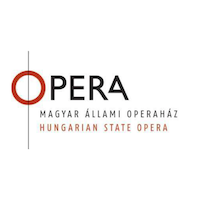| Erkel, Ferenc (1810-1893) | Hunyadi László | Libretto by Béni Egressy after Lőrinc Tóth |
| Hungarian State Opera | ||
| Tamás Pal | Conductor | |
| Gábor Szűcs | Director | |
| Katalin Libor | Set Designer | |
| Enikő Kárpáti | Costume Designer | |
| Csaba Vasvári | Revival Director | |
| Hungarian State Opera Chorus | ||
| Hungarian State Opera Orchestra | ||
| Tibor Szappanos | Tenor | László V |
| Istvan Horvath | Tenor | László V |
| Krisztián Cser | Bass | Ulrik Cillei |
| Marcell Bakonyi | Baritone | Ulrik Cillei |
| Klára Kolonits | Soprano | Erzsébet Szilágyi |
| Orsolya Hajnalka Rőser | Soprano | Erzsébet Szilágyi |
| Atilla Kiss B | Tenor | László Hunyadi |
| Attila Fekete | Tenor | László Hunyadi |
| Melinda Heiter | Mezzo-soprano | Mátyás Hunyadi |
| Gabriella Balga | Mezzo-soprano | Mátyás Hunyadi |
| István Kovács | Bass | Miklós Gara |
| Zoltán Kelemen | Baritone | Miklós Gara |
| Erika Miklósa | Soprano | Mária |
| Kinga Kriszta | Soprano | Mária |
| András Káldi Kiss | Bass | Rozgonyi |
It was in 1844, at the crest of the reform era, that Ferenc Erkel composed his patriotic opera focussing on one of the most turbulent periods in Hungarian history: the days after the victory over the Turks at Belgrade in 1456. The hero of this work set during the era of the Hunyadis, however, is neither the famous "Turk beater" János Hunyadi nor his younger son King Mátyás, but the older son László, who was treacherously sent to the scaffold while still a young knight. Contemporary viewers received the work enthusiastically, since its scarcely disguised implications reflected the political relationships of their own era; naturally its impact also comes from the music, which was based on Italian and French models, along with with "Verbunkos" traditions.
The first Hungarian-language opera to remain an honoured part of the repertoire without interruption since its premiere, it appeared in a new production at the Hungarian State Opera in 2012.


